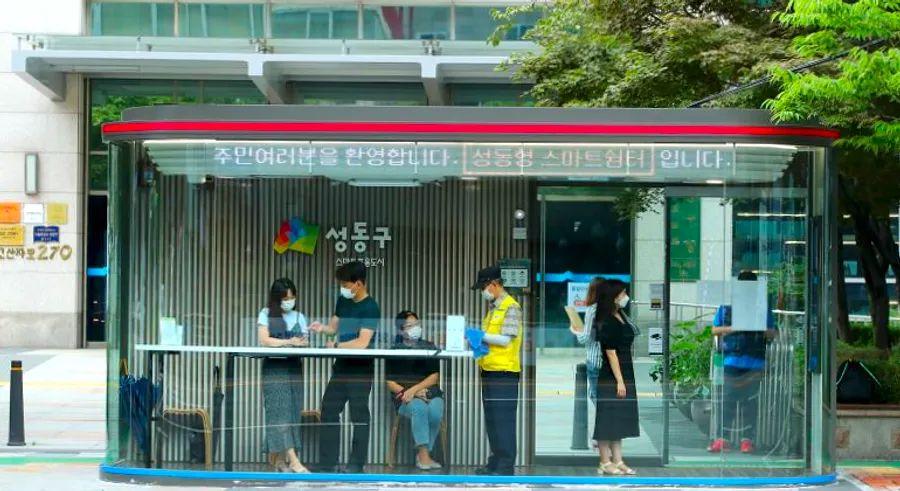In the age of COVID-19, Seoul’s new bus shelters block entry to anyone showing signs of a fever

In an effort to prevent the spread of COVID-19, Seoul's authorities have rolled out a series of glass-enclosed bus shelters that scan commuters' temperatures and deny access to anyone detected with a fever.
The city has installed ten solar-powered shelters along key bus routes in the Seongdong district, located in the heart of Seoul, according to the local government.
These innovative 'smart shelters' feature several measures to prevent the transmission of the coronavirus, including external thermal cameras, internal UV sterilizers, air conditioning, free WiFi, charging stations, and soothing therapeutic music.

Though the virus spreads more easily indoors than outdoors, Seoul's summers can be unbearable. Jeong Mi-rang, an official from Seongdong district, explained that the goal was to create an environment where people could seek refuge from the sweltering heat and heavy rain, while still reducing the risk of infection.
'It's best for people to avoid small, enclosed spaces during the pandemic,' said Jeong. 'But since it's inevitable that we’ll live with this situation for a while, we must find ways to adapt and live better under the current circumstances.'
South Korea has been recognized globally for its effective response to COVID-19. With a population of over 50 million, the country has reported fewer than 15,000 cases and 305 deaths, according to the global tally from Johns Hopkins University.
Experts have lauded South Korea for its significant investments in widespread testing and contact tracing, as well as for encouraging mask-wearing and maintaining good hygiene practices among the public.
The country has been quick to adopt innovative solutions to combat the challenges posed by the pandemic. Goyang, for instance, was one of the first cities globally to introduce drive-through coronavirus testing.
Evaluation :
5/5



